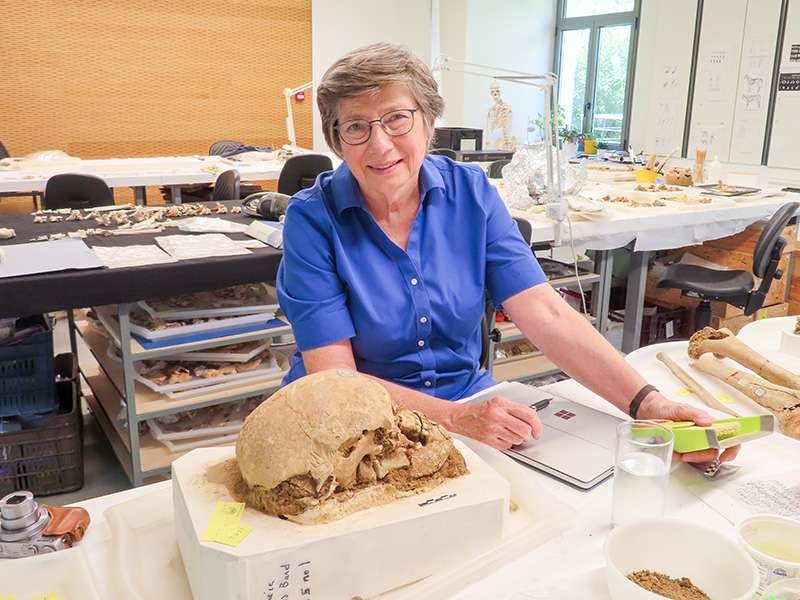Buried around the Lion, Lives and Deaths of Men who died at the Battle of Chaironeia, 338BCE
Presented By
American School of Classical Studies
and the Museum of Cycladic Art.
Keynote lecture for the conference,
Chaeronea, August 338 BC: A state of the question
Speaker(s)
Maria Liston,
University of Waterloo
Location
Cotsen Hall, Hybrid Lecture, Anapiron Polemou 9, Kolonaki 10676
The skeletons from the Lion Monument at Chaironeia are believed to be the remains of the Theban Sacred Band, killed at the Battle of Chaironeia in 338 BCE. The mass grave was excavated in preparation for the 19th Century reconstruction of the lion sculpture. Samples from the mass grave were removed and preserved in the National Archaeological Museum in Athens. Since 2022, a new collaborative project studying the recently rediscovered excavation notebooks, as well as the weapons, ceramics, historical accounts, and skeletons from the grave has provided new data on the battle and its aftermath. This lecture reports on the conservation and analysis of the skeletal samples, documenting battle injuries, as well as information on the lives and condition of the soldiers before the battle. In addition, a single complete skeleton, previously encased in plaster, has now been excavated and restored. Although some of the injuries were previously known, the first thorough cleaning and reconstruction of the bones has revealed new evidence of trauma and health condition of the soldiers. The excavator’s notebooks and drawings have also allowed previously isolated bones to be reassociated with individuals and their location in the mass grave to be identified.
About the speaker:
 Maria Liston is Professor of Anthropology at the University of Waterloo, Ontario, Canada. For over 35 years she has studied skeletons from excavations in Greece, including cremations from Kavousi, Crete, burials in wells from the Athenian Agora and Eretria on Euboea, and Early Christian hospice patients from Ismenion Hill in Thebes. Her work focuses on skeletal pathologies, with a particular interest in skeletal trauma and infectious diseases including leprosy. Her recent work on the skeletons from the Lion Monument at Chaironeia has provided a rare opportunity to document the skeletal injuries that were sustained by hoplites in battle.
Maria Liston is Professor of Anthropology at the University of Waterloo, Ontario, Canada. For over 35 years she has studied skeletons from excavations in Greece, including cremations from Kavousi, Crete, burials in wells from the Athenian Agora and Eretria on Euboea, and Early Christian hospice patients from Ismenion Hill in Thebes. Her work focuses on skeletal pathologies, with a particular interest in skeletal trauma and infectious diseases including leprosy. Her recent work on the skeletons from the Lion Monument at Chaironeia has provided a rare opportunity to document the skeletal injuries that were sustained by hoplites in battle.